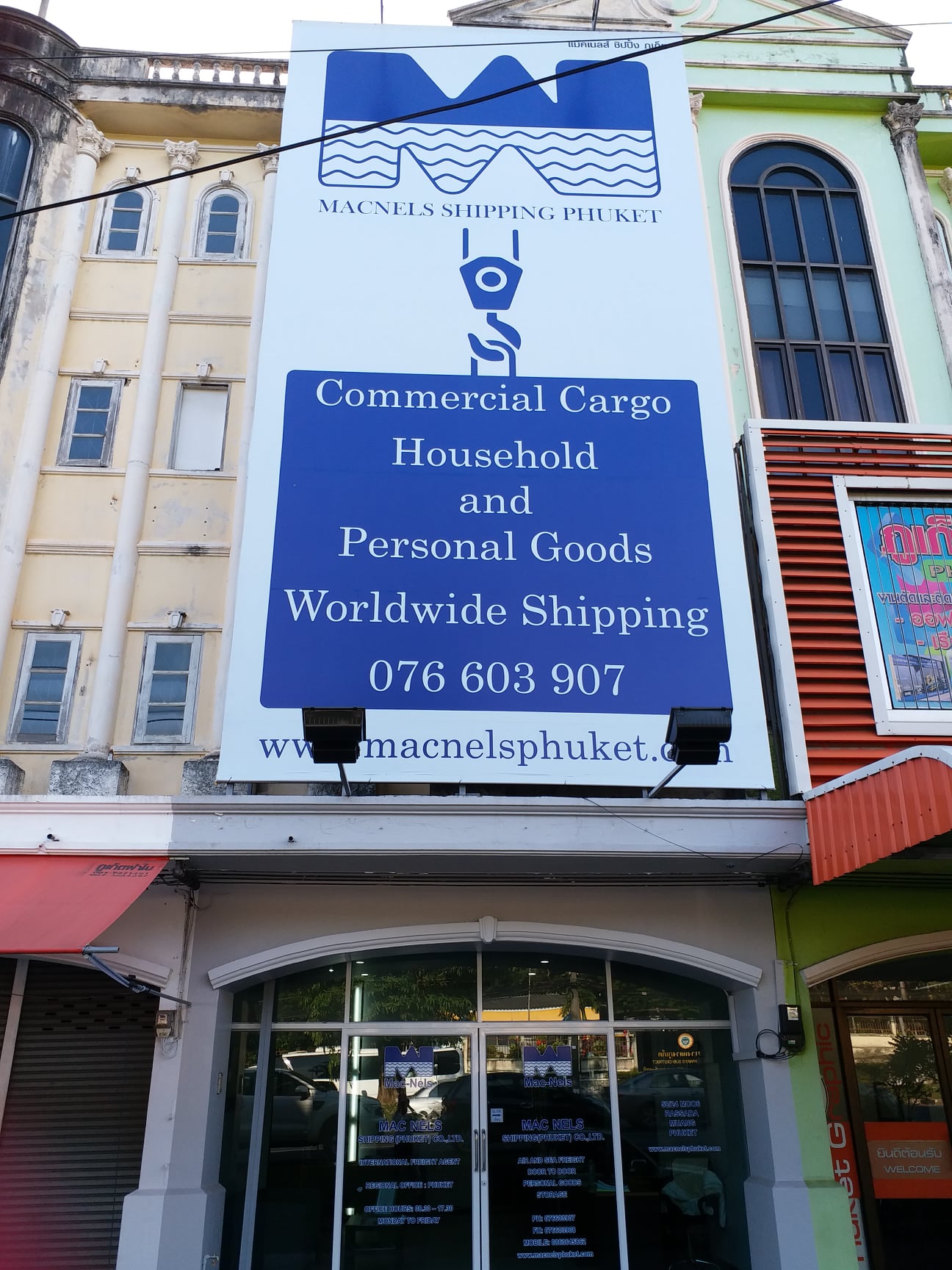Mac-Nels Shipping Phuket
Experts in Moving Home
Mac-Nels Shipping Phuket
Any shipment, anywhere in the world
Mac-Nels Shipping Phuket
Full, hassle-free and stress-free service
International Move Checklist – Before You Go
Home Preparations Before You Leave
Determine Which Items You Will Bring
When determining which items to bring, start by identifying the living situation in your host country. Will you be living in a permanent residence, or regularly moving from one place to the next? If living in a permanent residence, how much space will you have? Taking three suitcases probably isn’t feasible if you plan on jumping from one home to the next, or if you will be sharing a small apartment with others. Also, most airlines will charge a fee for extra luggage, so be picky about what you bring with you.
Store, Sell or Donate Everything Else
After determining which items you will bring with you, the next step is to identify which of the remaining items you will keep in storage, and which you will give away. Try to sell old possessions on Craigslist, Amazon, or eBay, and donate the remaining items that don’t sell to a local thrift shop.
Turn Off All Utilities
You certainly don’t want to receive a surprise utility bill from your utility company while living abroad. Be sure to check that all lights, heat, and water have been turned off in your home before you leave, and be sure to cancel or pause your plan with your utility company.
Sell or Rent Your House
Explore sites like Craigslist, or work with a realtor to sell your house. Keep in mind that selling or renting your house can take anywhere from a month to a year, so start the process as soon as possible.
Sell Your Car or Arrange for it to Be Shipped
The cost of shipping your car can vary greatly depending on the size of the car and distance that it will need to be shipped. For a frame of reference, shipping a car from the U.S to Europe typically ranges from $750 for a compact car, to $2000 for an SUV. While this may seem expensive, shipping your car could save you the hassle of having to sell your existing car, and find a new one after moving. Also, if you are used to driving an automatic car, be aware that in much of Europe, manual cars are the norm, and purchasing an automatic car typically costs much more.
Explore Home Options in Your Host Country
Explore expatriate forums and talk to locals to get a sense of the best housing options to consider, as well as best locations to try to find housing.
Foreign currency: Banking and International Accounts
Set Up an Account You Can Use Overseas
We recommend setting up an account with a large, international bank like HSBC, which simplifies your move by allowing you to open an international bank account in your host country before you move. In addition to that, try exploring Schwab Bank, which includes international ATM fee reimbursements, meaning that you will never have to pay a fee for using an ATM while abroad.
Inform Your Current Bank/Credit Cards About Your Move
Call your bank to inform them of your expected arrival in your host country, as well as a list of other countries that you expect to be visiting in the coming weeks. You should also check if any of your credit cards or debit cards have a foreign processing fee. These fees can add up quickly and drastically increase your living expenses. If all of your credit cards do have a foreign transaction fee, consider opening a new credit card, or withdrawing larger amounts of money when you visit ATMs in your host country to minimize flat withdrawal fees.
Provide a
Reliable Services
Since 1975

We are committed to outstanding customer service and satisfaction. No project is too big or small, we cater to customers needs into and from Phuket and Southern Thailand. Mac-Nels Phuket home removals, shipping and freight forwarders will get you moving.
Call us with your needs : 076 603 907 or 0935836522 (Chris), or email: [email protected]
We speak English, nous parlons français, เราพูดภาษาไทย



